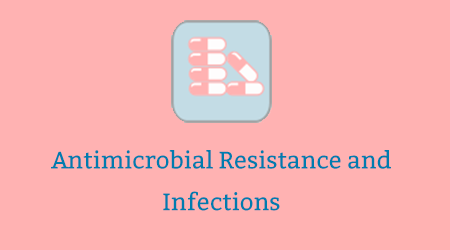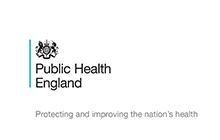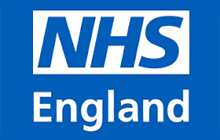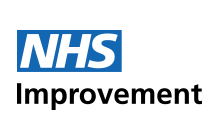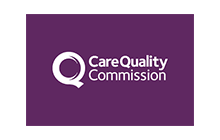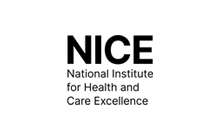About the Antimicrobial Resistance and Infections programme
The Antimicrobial Resistance (AMR) and Infections programme has been designed to support health and care staff – both clinical and non-clinical – in a variety of settings to understand the threats posed by antimicrobial resistance, and the ways they can help to tackle this major health issue. This programme has been developed by Health Education England (HEE) in collaboration with Public Health England (PHE), NHS England and NHS Improvement, Care Quality Commission and National Institute for Health and Care Excellence.
Antibiotic (antimicrobial) resistance poses a major threat to everyday life and modern day medicine where lives could be lost as a result of antibiotics not working as they should. All health and care staff, as well as the public, have a very important role in preserving the power of antibiotics and in controlling and preventing the spread of infections. Amongst the approaches to reduce this threat includes adequate infection prevention and control practices, good antimicrobial stewardship and the use of diagnostics.
Visit HEE website for more information on our AMR work.
AMR toolkit
HEE has produced an AMR toolkit , making available credible and helpful resources relating to antimicrobial resistance, as well as learning about the management of infective states, infection prevention and control and antimicrobial stewardship.
eLearning
Antimicrobial Prescribing for Urinary Tract Infections (UTIs)
The Antimicrobial Prescribing for Urinary Tract Infections (UTIs) elearning provides a quick overview on the key points to consider when prescribing antibiotics for UTIs, as outlined in the NICE guidance on managing common infections.
The session covers why the management of UTIs matter, what you need to know as a clinician, what you can do in your clinical practice and where can you find more information.
This bite-sized session is accompanied by an assessment and learners have the flexibility of assessing their knowledge before and/or after engaging with the session.
The AMR toolkit can support you in addressing any further learning needs you identify through completing this elearning.
Introduction to Antimicrobial Resistance
The Introduction to Antimicrobial Resistance session supports health and care staff, including non-clinical staff working for independent contractors within the NHS, as well as volunteers across health and care settings and service provision:
- discuss why there is such a concern about misuse of antibiotics and antimicrobial resistance.
- list the key risks for development of antimicrobial resistance.
- identify their role in tackling antimicrobial resistance.
It provides an overview for clinical and non-clinical staff. It will also be of benefit to all health and care staff, including those non-clinical staff working for independent contractors within the NHS, as well as volunteers across health and care settings and service provision.
Antibiotic Review kit – (ARK)
ARK is an antimicrobial stewardship initiative that aims to safely reduce antibiotic use in hospitals by helping staff stop unnecessary antibiotic treatments. This protects patients from drug side-effects like Clostridium difficile and antibiotic resistant infections.
This elearning was developed in partnership with British Society of Antimicrobial Chemotherapy (BSAC) and covers the rationale for the Antibiotic Review Kit, presents the ARK Decision Aid and also includes some brief scenarios, with reflection questions to consolidate learning.
Antimicrobial Stewardship for Community Pharmacy staff
How Community Pharmacies Can Keep Antibiotics Working
This free elearning session addresses the impact of antimicrobial resistance and the hugely important role community pharmacy staff can play in it.
This elearning will help community pharmacy staff:
- understand the connection between antibiotic use and antibiotic resistance
- identify their role in optimising antibiotic use in the general population who visit their pharmacy
- use the Antibiotic Checklist to personalise patient advice when dispensing antibiotics
- improve their self-care/safety-netting advice using the Treat Antibiotics Responsibly, Guidance, Education, Tools (TARGET) Treating Your Infection leaflets
- be aware of the global impact of antibiotic resistance
This has been developed by Public Health England in partnership with British Society of Antimicrobial Chemotherapy (BSAC), Royal Pharmaceutical Society, University of Leeds, University of Nottingham. Graphic design provided by The Letter G.
Case studies
Antimicrobial Stewardship for Pharmacy Staff – case study
The Royal Pharmaceutical Society supported key pharmacists within NHS Trusts and Sustainability and Transformation Partnerships (STPs) to develop the skills and behaviours to become effective antimicrobial clinicians, leaders and mentors via a pilot training programme in London and the south east of England.
You can view the individual case studies from the training here.
Action on AMR – case study
Action on AMR focussed on equipping teams with QI skills to deliver their improvement work and share successful initiatives, rather than demonstrating a significant reduction in Gram-negative bloodstream infections (GNBSI) rates in the region. It is hoped that infection rates will be reduced in future as the teams progress their improvement work using the skills and knowledge gained.
Antimicrobial Stewardship (AMS) change – case study
The University of Manchester – AMS change project developed a cohort of “AMS CHANGErs”: experts in behaviour change related to AMS, with the capability, opportunity and motivation to drive change in health professional practices related to AMS.
The following report – AMS Change: Practical training to apply behavioural science to antimicrobial stewardship , outlines the development and training that has been created. It can support the development of AMS Change projects in local areas.
Films
-
AMR Public Awareness
AMR Public Awareness
This short animation is aimed at the public and has been produced in partnership with PHE, intended to be used by health and social care staff in a variety of settings with the aim of helping prescribers respond appropriately to patients requesting antibiotics without medical need. The creation of the animation was influenced by the work of the Wellcome Trust in understanding how the public responds to information about antimicrobial resistance.
-
AMR GP and Primary Care Awareness
AMR GP and Primary Care Awareness
Also developed is an introductory film entitled a guide for GPs on antimicrobial resistance aimed at GPs and primary care staff to provide an introduction into the risks associated with the over-use of antibiotics, and to encourage appropriate dispersion of the animation above. It supports a range of educational materials for GPs and other primary care prescribers called the TARGET toolkit.
-
Urinary Tract Infection Management in the Elderly
Urinary Tract Infection Management in the Elderly
Surveillance shows that previous urinary tract (bladder) infections, urinary catheterisation, hospitalisation, being prescribed antibiotics in the previous month and old age are key risk factors for these infections in the out of hospital setting. This short film aims to support health and care workers looking after older adults with suspected urinary tract infections (UTIs) and introduces resources that can be used to diagnose, manage and prevent UTIs in the out of hospital setting. In particular Public Health England’s (PHE) diagnostic flowchart and a patient leaflet to facilitate the management of suspected UTIs in the older frail population.
‘To Dip Or Not To Dip’ has a network of health and social care professionals who are improving the management of UTI in older people in care settings throughout the UK. To join this community email elizabeth.beech@nhs.net -
Blood Culture Pathway Awareness
We collaborated with NHS England and NHS Improvement to produce 2 animated videos to improve antimicrobial stewardship by raising awareness and promoting an optimal blood culture pathway as set out by Public Health England.
The first animation is a general overview, designed to raise awareness of the issues and will explain the background of AMR, the importance of an optimal blood culture pathway in AMS, and some of the factors to consider in the pre-analytical, analytical and post-analytical phases.
The second animation is a step-by-step guide of good practice in taking a blood culture sample in the pre-analytical phase.
Improving the blood culture pathway
Blood culture pathway: Taking a blood culture
-
Primary Care Antibiotic Prescribing
This film is aimed at health and care staff who recommend, prescribe, dispense and supply antibiotics in primary care. It highlights processes, considerations and actions that should occur to support safe and effective antibiotic prescribing and signposts to further available resources. The film is based on the TARGET Toolkit and NICE Guidance on ‘Managing common infections and antimicrobial stewardship’.
This will help health and care staff to:
- understand the connection between antibiotic use and antibiotic resistance.
- identify their role in optimising antibiotic use and stewardship.
- ensure compliance with national guidance when recommending, prescribing, dispensing and administering antibiotics.
improve their self-care/safety-netting advice to patients on the appropriate use of antibiotics.
-
Secondary Care Antibiotic Prescribing
This film is aimed at health and care staff who recommend, prescribe, dispense and supply antibiotics in secondary care. It highlights processes, considerations and actions that should occur to support safe and effective antibiotic prescribing and signposts to further available resources. The film is based on Public Health England’s ‘Start Smart – Then Focus: Antimicrobial Stewardship Toolkit’ and NICE Guidance on antimicrobial stewardship.
This will help health and care staff to:
- understand the connection between antibiotic use and antibiotic resistance.
- identify their role in optimising antibiotic use and stewardship.
- ensure compliance with national guidance when recommending, prescribing, dispensing and administering antibiotics.
- improve their self-care/safety-netting advice to patients on the appropriate use of antibiotics.
UTI learning resources
-
Educational resources for health and care workers
Educational resources for health and care workers
For care workers
- Urinary tract infections (UTIs)’ A leaflet for older adults and carers [Word; PDF and User Guide] and leaflet for those under 65 years ‘Treating your infection – URINARY TRACT INFECTION’ [Word; PDF and Fully Referenced].
- To Dip or Not to Dip? Training handbook; elearning; animation; poster and leaflet.
- Oxford AHSN: Good hydration and urine infections (Part 1, 2, 3, 4, 5 & 6).
- Infection Control In Care Homes films.
- eLearning for Healthcare (elfh) Continence and Catheter Care; Promoting Best Practice in Catheter Care and Management of Incontinence and Urinary Catheters.
For health workers
- Managing UTI eModule explains the importance and appropriateness of diagnostics and offers advice on how to assess and treat patients with a range of urinary symptoms.
- Webinar on UTIs highlights simple key actions to help improve your antibiotic prescribing while improving the patient experience and their self-care, therefore freeing up your time.
- Antibiotic presentation core slides lasts 60 minutes and includes a clinical scenario on UTIs, slide notes and references.
- PHE quick reference tools for diagnosis of UTIs including knowing when to use the microbiology laboratory and how to understand results.
- To Dip or Not to Dip? Presentation for GPs.
- NHSI Preventing Healthcare Associated Gram-Negative Bacterial Bloodstream Infections toolkit
- NICE: Urinary tract infection products
- HEE: Antimicrobial resistance – A training resources guide
-
Practical resources for health and care workers to share with patients and carers
Practical resources for health and care workers to share with patients and carers
- ‘Urinary tract infections (UTIs)’ A leaflet for older adults and carers [Word; PDF and User Guide]
- Preventing Urinary Tract Infections Poster
- To Dip or Not to Dip? Leaflet
[1] https://www.gov.uk/government/publications/government-response-the-review-on-antimicrobial-resistance
[2] http://www.pulsetoday.co.uk/clinical/clinical-specialties/infectious-diseases/what-the-new-uti-guidance-means-for-gps/20036770.article - TARGET leaflet ‘Treating your infection – URINARY TRACT INFECTION’ for those under 65 years [Word; PDF and Fully Referenced].
Further materials
-
TARGET
TARGET
TARGET (Treat Antibiotics Responsibly, Guidance, Education, Tools) helps influence prescribers’ and patients’ personal attitudes, social norms and perceived barriers to optimal antibiotic prescribing. It includes a range of resources that can each be used to support prescribers’ and patients’ responsible antibiotic use, helping to fulfil CPD and revalidation requirements. Free resources include:
- leaflets to share with patients (translated into more than 20 languages)
- resources for clinical and waiting areas
- audit toolkits, self-assessment and action planning
- training resources
-
Keep Antibiotics Working
Keep Antibiotics Working
Public Health England (PHE) first launched ‘Keep Antibiotics Working‘ national campaign in October 2017 across England. This was to support the government’s efforts to reduce inappropriate prescriptions for antibiotics by raising awareness of the issue of antimicrobial resistance and reducing demand from the public. The campaign’s key aims are:
- alert and inform the public to the issue of antimicrobial resistance (AMR) in a way that they understand, in a manner which they understand, and increase recognition of personal risk of inappropriate usage
- reduce public expectation for antibiotics by increasing understanding amongst patients about why they might not be given antibiotics, so reducing demand
- support healthcare professional (HCP) change by boosting support for alternatives to prescription
The messaging for the national campaign aims to move patients to a better understanding that taking antibiotics when you don’t need them means they are less likely to work for you in the future and to trust their doctors’ advice regarding the best appropriate treatment for them.
-
e-Bug
e-Bug
A free health education resource, e-Bug, is also available for health and care staff to reduce antibiotic resistance by helping children and young people understand infections and antibiotic use. It is a valuable resource, not only because it is free to access, but it’s also available in 27 languages, being used in 221 countries worldwide.
-
Antibiotic Guardian
Antibiotic Guardian
Antibiotic Guardian, a campaign led by PHE, urges members of the public and healthcare professionals to take action in helping to slow antibiotic resistance and ensure our antibiotics work now and in the future. To become an Antibiotic Guardian, people choose 1 pledge about how they can personally prevent infections and make better use of antibiotics and help protect these vital medicines.
-
FutureLearn
FutureLearn
Clinical staff who have an active interest and prior experience in the prevention, diagnosis and management of infectious disease should consider accessing the free, interactive 6 week online course on Antimicrobial Stewardship by the British Society for Antimicrobial Chemotherapy, University of Dundee and FutureLearn. For more information, please visit FutureLearn.
Health Education England Project team

Antonio De Gregorio
Programme Coordinator – Antimicrobial Resistance and Sepsis, Health Education England, Population Health and Prevention Team
Mohamed Sadak
Clinical Lead and Programme Manager, Antimicrobial Resistance and Sepsis, Health Education England, Population Health and Prevention Team
Janet Flint
Programme Lead, Health Education England, Population Health and Prevention Team
Dr Sanjiv Ahluwalia
Postgraduate Dean, Health Education England, North Central and East London
Alan Ryan
National Programmes Director, Health Education England
Vanessa Petroni-Caesar
Programme Coordinator – Long Term Conditions and Prevention
elearning team

Diane Ashiru Oredope
Lead Pharmacist, Health Care Associated Infections & AMR Division, Public Health England Content author - Reducing Antimicrobial Resistance: An Introduction
Emma Nye
Programme Manager, HEE elearning for healthcare
Jon Collins
Project Manager, HEE elearning for healthcare
Tracy Watkins
Learning Designer, HEE elearning for healthcare
Rashmi Chavda
Graphic Designer, HEE elearning for healthcare
Alex Drinkall
Communications and Stakeholder Lead, HEE elearning for healthcare
Louise Garrahan
Communications and Stakeholder Officer, HEE elearning for healthcare
Antimicrobial Stewardship for Community Pharmacy Staff Project Team

Cliodna McNulty
Head of Primary Care and Interventions Unit, Public Health England
Rosie Allison
Project Manager, Public Health England
Diane Ashiru-Oredope
Lead Pharmacist, Health Care Associated Infections & AMR Division, Public Health England Content author - Reducing Antimicrobial Resistance: An Introduction
Philip Howard
Consultant Antimicrobial Pharmacist, Leeds Teaching Hospitals NHS Trust President of the British Society for Antimicrobial Chemotherapy (BSAC) Visiting Professor, University of Leeds
Tracey Thornley
Senior Manager Contract Framework and Outcomes, Boots UK Honorary Professor in Pharmacy Practice, University of Nottingham Member, Royal Pharmaceutical Society English Pharmacy Board
Sara Chapman
Information Designer, The Letter g Teaching Fellow, Department of Typography, University of Reading
Sue Walker
Professor of Typography, University of Reading Principal Investigator, Information Design and Architecture in Persuasive Pharmacy Space (ISAPPS): combatting AMR
Antibiotic Review kit – (ARK)

Dr Martin Llewelyn
Professor Martin Llewelyn (BSc, FRCP, DTMH, PhD) Professor in Infectious Diseases, Royal Pharmaceutical Society – Content author, Antibiotic Review kit – (ARK)
Beth Ward
BPharm MSc MFRPSII MRPharmS Head of Education, Royal Pharmaceutical Society Content author, Antimicrobial Stewardship for Pharmacy Staff
Annie Joseph
Clinical Microbiologist - Nottingham University Hospitals NHS Trust Content author, Out of hospitals management of UTIs in elderly patients
Professor Jo Hart
Content author, AMS Change: Practical training to apply behavioural science to antimicrobial stewardship
Dr Lucie Byrne-Davis
Content author, AMS Change: Practical training to apply behavioural science to antimicrobial stewardship
Jo Higgins
Content author, Action on AMR: Advancing Quality Action on Antimicrobial Resistance (AMR) Programme
Antimicrobial prescribing for common infections elearning session

Dr Tessa Lewis
Author, Public Health England, General Practitioner, Medical adviser, Chair NICE Managing Common Infections Advisory Committee
Dr Donna Lecky
Head of the Primary Care and Interventions Unit, Public Health England
How to access
Available to all
The Antimicrobial Resistance and Infections programme is freely available to access here.
Please note your progress and completion of sessions will not be recorded and you will not be able to generate a record of completion. If you require evidence of learning, please register and then log in to access this programme on the elfh Hub.
If you already have an account with elfh, then you can enrol on to the Antimicrobial Resistance and Infections programme by logging in to the elfh Hub, selecting My Account > Enrolment and selecting the programme. You can then access the programme immediately in the My elearning section.
In order to access the Antimicrobial Resistance and Infections programme, you will need an elfh account. If you do not have one, then you can register by selecting the Register button below.
To view the Antimicrobial Resistance and Infections programme, select the View button below. If you already have an account with elfh, you will also be able to login and enrol on the programme from the View button.
NHS healthcare staff in England
The Antimicrobial Resistance and Infections programme is also available to NHS healthcare staff via the Electronic Staff Record (ESR). Accessing this elearning via ESR means that your completions will transfer with you throughout your NHS career.
Further details are available here.
Not an NHS organisation?
If you are not an NHS health or care organisation and therefore do not qualify for free access elfh Hub, you may be able to access the service by creating an OpenAthens account.
To check whether or not you qualify for free access via OpenAthens, you can view the eligibility criteria and register on the ‘OpenAthens’ portal.
Registering large numbers of users
If you are a HR, IT or Practice Manager and would like to register and enrol large numbers of staff within your organisation for access onto the Antimicrobial Resistance and Infections programme, please contact elfh directly.
Organisations wishing to use their own LMS
For HR departments wanting to know more about gaining access to courses using an existing Learning Management System please contact elfh directly to express interest.
Access for care home or hospice staff
To register for the Antimicrobial Resistance and Infections programme, select the ‘Register’ button above. Select the option ‘I am a care home or hospice worker’ then enter your care home / hospice name or postcode and select it from the options available in the drop down list. Finally enter your care home / hospice registration code and select ‘Register’. You may need to see your employer to get this code.
If your employer does not have a code, then they need to contact the elfh Support Team. The Support Team can either give the employer the Registration Code or arrange a bulk upload of all staff.
Access for social care professionals
Access to elfh content is available to all social care professionals in England whose employers are registered with the Skills for Care National Minimum Data Set for Social Care (NMDS-SC). Every employer providing NMDS-SC workforce information to Skills for Care has been given a user registration code for their staff. This code enables you to self-register for access to the Antimicrobial Resistance and Infections programme. Please contact your employer for more details about the registration code. For information about registering your organisation with the NMDS-SC your employer should access www.nmds-sc-online.org.uk or contact the Skills for Care Support Service on 0845 8730129.
If you have a registration code select the ‘register’ button above.
More information
Please select the following link for more information on how to use the elfh Hub.



